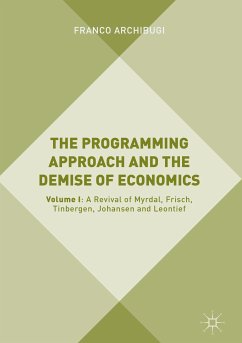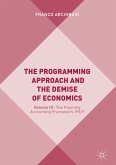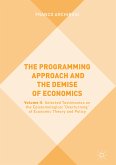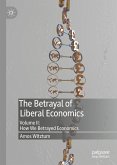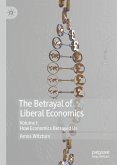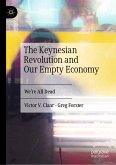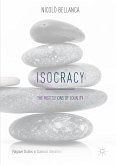of economics, arguing for a radical overturning of the conventional analysis from a
"positive" approach to a "programming" approach. This overturning leads to a reappraisal
of the foundations of Economics itself, and to an improved integration of Economics as an
autonomous discipline alongside Sociology, Political Science, Operational Research, Social
Engineering and Physical or Spatial Planning.
The author interrogates how scientific the social sciences really are before proposing a new
scientific paradigm for the social sciences, a political preference function and a general
programming approach. The chapters revisit hitherto neglected economists like Gunnar
Myrdal, Ragnar Frisch, Vassili Leontief, and Leif Johansen, using their theory to overturn the
epistemological approach of the entire science of economics.
Volume IIexplores oppositions to the traditional and conventional teaching of economics,
whilst Volume III presents a concrete and practical example of how to build a Planning
Accounting Framework (PAF), as associated with Frisch's 'plan-frame' (explored in Volume II),
to demonstrate the extent to which decisions and negotiations can be routed in the social
sciences.
Dieser Download kann aus rechtlichen Gründen nur mit Rechnungsadresse in A, B, BG, CY, CZ, D, DK, EW, E, FIN, F, GR, HR, H, IRL, I, LT, L, LR, M, NL, PL, P, R, S, SLO, SK ausgeliefert werden.

